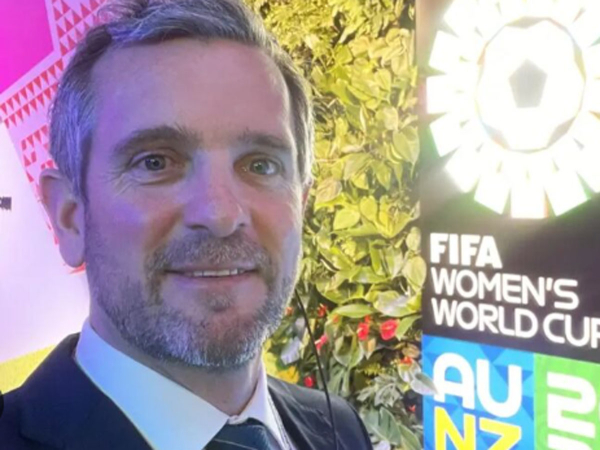[ad_1]
Leslynne Jackson has at her fingertips thousands of examples of how social services are failing whānau in her region. They include examples of what she calls “waste work” – families with complex needs having to repeatedly fill in the same forms, answer the same questions, attend long and onerous assessment meetings – and still not get what they need.
Some of the failings of which she has detailed evidence are Kafkaesque. Here’s an example: a family in acute housing need (perhaps they’ve been evicted, they’re crowded in with relatives, or they’re living in a car or cowshed) goes to Work & Income to seek housing assistance. They have a three-hour appointment, and answer over 300 questions on the standard assessment form. Then, at some point, a letter is mailed out to whatever address has been provided. But the family doesn’t get the letter, because by then they’re not living there anymore.
“And so they drop out of the system,” says Jackson. “They think they’re are on the waiting list, but actually they’re not on the waiting list.” By that time, weeks or months may have elapsed, stress and hardship has compounded, and they are still homeless.
Jackson is programme lead for Manaaki Tairāwhiti, an iwi-led leadership group focused on improving whānau wellbeing in the district. It was set up in 2016 with funding from the former National-led government as a “place-based” initiative to trial improved social service delivery, and includes representatives from government social service agencies, the Gisborne District Council, community organisations and iwi leaders and staff.
Seven years on, Jackson knows the precise extent to which the system of social service delivery is failing. Through a team of “navigators” – workers who support whānau to get their way around complex social service systems – a detailed evidence base has been collected that records and synthesises the anonymous experiences of people seeking help.
Capturing the experiences of over 1000 families with 5,500 needs, the data reveals a bleak picture. “Almost half the people – 47 percent – couldn’t get what they needed from the system quickly, easily, or at all,” Jackson says.
She calls this the “barrier rate”, and for some services it’s even higher – 75 percent of those seeking respite from caring for a sick or disabled family member didn’t get the help they needed.
Confronted with barriers, people cycle constantly through the system, contributing to ongoing and, in many cases, intergenerational hardship.
The nature of these barriers are many and varied: racism and discrimination; lack of decision-making authority by front-line workers; complex and bureaucratic procedures; what the Productivity Commission in its 2023 Fair Chance for All inquiry called “pseudo accountability” – pointless box-ticking and form-filling to send up the chain to Wellington, rather than genuine accountability to those whānau who need support.
These failures are expensive and wasteful, not only in terms of human suffering and thwarted potential, but fiscally. NZIER analysis for Manaaki Tairawhiti shows that government spending on social services in the region is around $1.17 billion a year. This figure includes the likes of health, justice, education and standard welfare benefits, but it also includes $50 million in spending on 150 service delivery contracts held by the Ministry of Social Development with around 25 providers.
Jackson has been working to take Manaaki Tairāwhiti’s detailed insights on system failures and work with social service leaders in Tairāwhiti to “remove the kinks in the hose” so that whānau get the support they need.
“We are working collaboratively at a regional level, and those leaders are incredibly responsive. But at the end of the day this can only work if decision-making has been devolved,” she says.
And there-in lies the rub.
Homework for new ministers
Devolution is a concept that the minister for social investment, Nicola Willis, and minister for social development, Louise Upston, are being asked to focus their attention on, via two important new reports: one from Tairāwhiti iwi leaders Ronald Nepe (who is also board chair of Manaaki Tairāwhiti) and George Reedy; and another – published today – by NZIER economists Julie Fry and Peter Wilson.
Manaaki Tairāwhiti’s report, Self-determination in Tairāwhiti has harnessed years of experience and the sophisticated insights gathered by Jackson’s team to argue for the progressive devolution of social services spending and decision-making power to the four local iwi in the region.
It points out that the failings of the current social service delivery model have been documented in official reports for decades, going back at least to the 1988 Puao-te-ata-tu (Daybreak) report, which called the Ministry of Social Welfare a “highly centralised bureaucracy insensitive to the needs of many of its clients”. Yet the Wellington-centric model of delivery has remained largely unchanged, and the impact of its failings falls disproportionately on Māori.
The Whānau Ora model, championed by Dame Tariana Turia, is a notable exception. But it is tiny in relation to the need and overall social spending – as Fry and Wilson point out, the three Whānau Ora commissioning agencies received only $135 million last year, compared with the $518 million spent on the Winter Energy Payment. And it remains a top-down system, with service providers entangled in time-consuming compliance reporting to satisfy the demands of central government.
The Manaaki Tairāwhiti report says devolution to iwi in the region makes sense, “since more than half our population is Māori and a vast majority of social service users are Māori.” Their ambition is the “substantial transfer of authority, responsibility and resources in social services so that we can successfully provide for those who use current government systems.”
It sees Tairāwhiti as the ideal testing ground for devolution of funding and decision-making power: it’s small (50,000 people), isolated, and two-thirds of the population (and 77 percent of Māori) rank among the 20 percent most deprived people in New Zealand, according to the Index of Deprivation.
Further, “iwi and hapū in the region have trusted relationships with the whānau we serve, as well as with each other and government agencies, and, therefore, we have the highest level of accountability to our place and people,” argues the report.
Devolution to iwi organisations might look scary to risk-averse politicians and public service leaders in the capital, “but not making significant change remains the bigger risk,” believes Manaaki Tairāwhiti.
“There is an urgent need to take action and to build on the momentum developed through regional leadership, to create truly transformative change within one generation. Let’s break the cycle of welfare dependency for whānau and, instead, assist them with self-determination and capabilities to achieve their aspirations.”
Manaaki Tairāwhiti isn’t asking for radical overnight change – it’s calling initially for around $1.5 million for feasibility studies to show how a devolved system would work across the four spheres of child well-being, Whānau Ora, housing and a Tairāwhiti Leadership Board.
Cold hard logic
It remains to be seen whether these arguments will gain traction with the leaders of the new coalition Government, some of whom have distinguished themselves in their first weeks in power with attacks on te reo Māori and iwi co-governance, and by promoting false narratives about Māori privilege.
The authors of the Manaaki Tairāwhiti report nevertheless hope their arguments will appeal to the cold hard fiscal logic of senior ministers like Willis, who – with Upston and Prime Minister Christopher Luxon – visited the organisation while in Opposition.
As their report makes clear, the status quo is eye-wateringly expensive, and it’s failing to improve the lives of those who are suffering the most. “[T]otal social service expenditure has increased eighteen-fold between 1980 ($3.9 billion in present day terms) and 2021 ($73.6 billion), and represented around 47.7 percent of total government expenditure in 2020 against 38.5 percent in 1990,” notes the report. “Yet, we have decades of evidence in the form of government-initiated reviews and inquiries that point to the fact that while the current state is working for some, our social sector services are failing to address complex, multiple, and intergenerational needs. In particular, our current social services system is failing Māori.”
In their report, Let It Go: Devolving power and resources to improve lives, NZIER economists Julie Fry and Peter Wilson mount similar arguments to Manaaki Tairāwhiti, albeit at a more conceptual level. They, too, point to the failure of the current social services system to meet the needs of whānau for whom factors such as long-term joblessness, severe disabilities, homelessness, institutional racism, abuse in state care, and family violence have trapped them in a precarious state of long-term disadvantage.
Wilson argues standardised social service delivery by the state “works mostly well for most people most of the time, and that’s because most people most of the time don’t need it.”
But for a minority of people there’s a need for bespoke, local, long-term support based on trusting relationships to help struggling whānau shift from lives of persistent disadvantage to the ability to “live lives they value”.
Wilson and Fry argue only about 15,000 people are in this category, based on data collated for the Productivity Commission’s 2023 Fair Chance for All inquiry, and analysis by researcher Max Rashbrooke putting the figure at between 5000 and 10,000.
This figure seems surprisingly low, given that official measures show 125,700 children are living in material hardship, deprived of basic daily necessities. And Leslynne Jackson, for one, doesn’t believe it accurately describes the true extent of severe need, not least because many people conceal their needs because they don’t want government agencies in their lives.
But Fry says the 15,000 figure represents the people of greatest concern, those who have had “absolutely abject, miserable experiences under current arrangements”.
Fry and Wilson say the Government should start moving towards more devolved services by selecting a number of existing flaxroots organisations with proven track records of working with local whānau, and set aside a level of funding per person sufficient to meet the need. As a ballpark figure, they suggest $50,000 per person per year, guaranteed for five years, which would equate to $750 million a year – enough to enable nimble and capable local organisations to work with families to design and deliver the support they need and “[walk] with them on a journey of change”.
They argue that addressing persistent disadvantage is about more than just incomes and resources, and that often those in the most severe need struggle to “convert” these into a better life.
“Government departments assume that people can convert resources into a good life, and thus, what is needed is more resources combined with effective delivery. While this is true for the majority of people in New Zealand… it is not true for a sizeable minority of people.”
Over the decades, governments have tried variations on the same theme to address persistent disadvantage: tinkering with benefits, fiddling around with inter-departmental collaboration, running pilot programmes that fade into oblivion, and commissioning NGO service providers who must meet time-consuming and unproductive reporting requirements to keep their funding.
“But perpetuating a top-down approach, where contracts focus on outputs and fail to specify the outcomes people need, [does] not give contracting parties the freedom to innovate and require extensive compliance, is not what is needed to achieve change,” argue Fry and Wilson. “[W]hat is needed is a new strategy based on devolution.
“This is not a semantic quibble. Commissioning leaves most power with the centre. Devolution transfers most power to people experiencing persistent disadvantage and those supporting them.”
They argue that what’s needed for the most disadvantaged families is the support of skilled and responsive local organisations that can build long-term relationships, develop highly personalised plans led by people themselves, and a “holistic understanding of people’s lives and needs”.
Wilson says the devolution proposal is consistent with the idea of social investment, championed by former finance minister and prime minister Bill English, and on the agenda of the new coalition government.
In a keynote speech re-launching National’s commitment to social investment, Willis last year spoke of the failures of a system of “multiple output-oriented contracts slicing up social challenges and losing sight of the wood for the trees. Losing sight of the individual families and people we are meant to be helping”. She trumpeted the power of local skills, saying “nine times out of ten an experienced grassroots member of a community has a better idea of how to affect change for their neighbours than the most well-intended far-flung public servant ever will”.
The report writers from Tairāwhiti and the NZIER promoting devolution of funding and decision-making power to the grassroots will be hoping that their proposals will help put genuinely whānau-centred substance and fiscal logic to Willis’s broad-bush policy.
*Disclosure: Rebecca Macfie was one of a number of people invited to read and comment on an early draft of Wilson and Fry’s paper.
[ad_2]
Source link





















